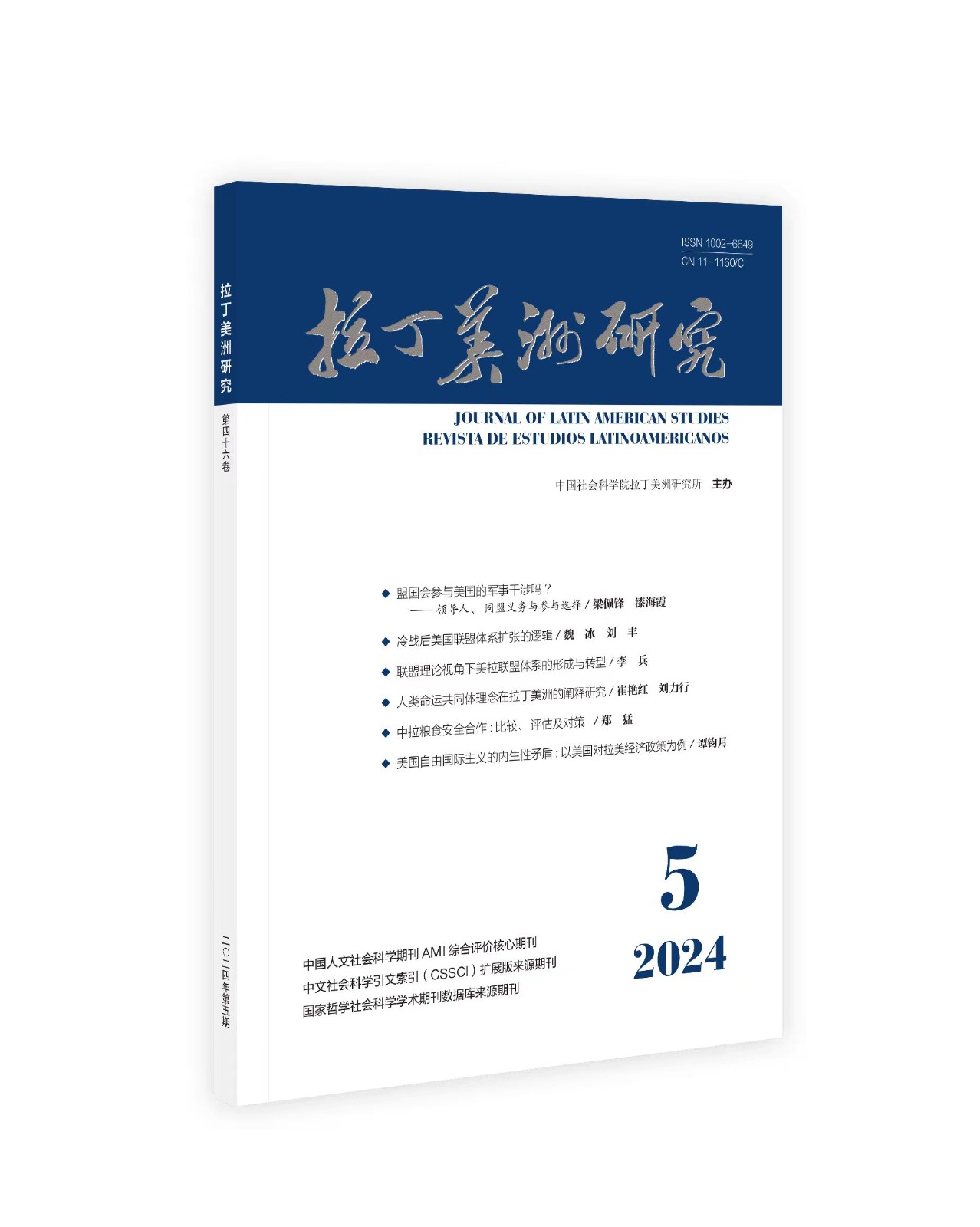Erynn Masi de Casanova, Dust and Dignity: Domestic Employment in Contemporary Ecuador (Ithaca, NY, and London: Cornell University Press, 2019), pp. xi + 174, £20.99 pb.
IF 0.7
2区 历史学
Q2 AREA STUDIES
引用次数: 0
Abstract
and festive component, whose main function was to reassert egalitarian relations between the two nations (p. 93). During the 1840s, prompted by aspirations of capital expansion and racist civilising discourses against Indigenous savagery, Chilean authorities transformed parlamentos, from diplomatic instances to meetings with compliant Mapuche leaders where treaties with conditions set by Chilean governments were signed. As Herr convincingly argues, the new treaties justified the military invasion of Wallmapu not as a war of conquest that would require peace agreements and future reparations, but as the appeasement of borderlands ideally followed by concessions to Indigenous people under the terms and conditions set by the state, such as the limited recognition of land ownership rights within the small space of reservations (reducciones). Rolf Foerster’s ¿Pactos de sumisión o actos de rebelión? (Pehuén, 2018) and Fernando Pairican’s Toqui: Guerra y tradición en el siglo XIX (Pehuén, 2020)−monographs on Indigenous-state relations not available at the time of writing of Contested Nation− focus on how Mapuche customary diplomacy was deployed in response to the increasingly aggressive and authoritarian stance of Chilean governments. These works open the possibility that, while the signing of treaties entailed an overall Mapuche submission to the Chilean state, negotiations with future conquerors provided the means through which the Mapuche population ensured its cultural survival, threatened by the prospect of extermination and animated claims of autonomy and self-governance that would later in the twentieth century inspire the consolidation of a large and diverse Mapuche social movement. Beyond the success of Chilean violent colonisation, can Mapuche diplomatic engagement with the Chilean state also reveal a possible failure of the nineteenth-century Chilean elite’s project of complete assimilation and eradication of Mapuche anticolonial aspiration? (See Pairican, Toqui (2020), p. 281.) Herr’s book points to the possibility of a new way of thinking about diplomacy and colonial violence in the nineteenth century that will continue to catch the attention of historians of state formation in Latin America.Erynn Masi de Casanova,《尘埃与尊严:当代厄瓜多尔的国内就业》(纽约伊萨卡和伦敦:康奈尔大学出版社,2019年),第xi+174页,20.99英镑。
节日部分,其主要功能是重申两国之间的平等关系(第93页)。19世纪40年代,在资本扩张的愿望和反对土著野蛮的种族主义文明言论的推动下,智利当局将议会从外交场合转变为与顺从的马普切领导人会面,在那里签署了符合智利政府规定条件的条约。正如Herr令人信服地指出的那样,新条约证明对Wallmapu的军事入侵不是一场需要和平协议和未来赔偿的征服战争,而是对边境地区的绥靖,理想情况下是在国家规定的条款和条件下向土著人民让步,例如在保留的小范围内有限地承认土地所有权(减少)。Rolf Foerster的Pactos de sumisión o actos de rebelión?(Pehuén,2018)和Fernando Pairican的Toqui:Guerra y tradición en el siglo XIX(Pehuèn,2020)——在撰写《竞争民族》时还没有关于土著国家关系的专著——重点关注马普切人的习惯外交是如何应对智利政府日益咄咄逼人和独裁的立场的。这些作品开启了一种可能性,即虽然条约的签署意味着马普切人全面臣服于智利国家,但与未来征服者的谈判提供了马普切人民确保其文化生存的手段,受到灭绝前景的威胁,以及对自治和自治的积极主张,这些主张将在20世纪晚些时候激发一场大规模和多样化的马普切社会运动的巩固。除了智利暴力殖民的成功之外,马普切人与智利政府的外交接触是否也揭示了19世纪智利精英完全同化和根除马普切反殖民愿望的项目可能失败?(见Pairican,Toqui(2020),第281页。)Herr的书指出了一种新的思考十九世纪外交和殖民暴力的方式的可能性,这种方式将继续引起拉丁美洲国家形成历史学家的注意。
本文章由计算机程序翻译,如有差异,请以英文原文为准。
求助全文
约1分钟内获得全文
求助全文
来源期刊

拉丁美洲研究
Multiple-
CiteScore
1.60
自引率
0.00%
发文量
3870
期刊介绍:
Journal of Latin American Studies presents recent research in the field of Latin American studies in economics, geography, politics, international relations, sociology, social anthropology, economic history and cultural history. Regular features include articles on contemporary themes, specially commissioned commentaries and an extensive section of book reviews.
 求助内容:
求助内容: 应助结果提醒方式:
应助结果提醒方式:


